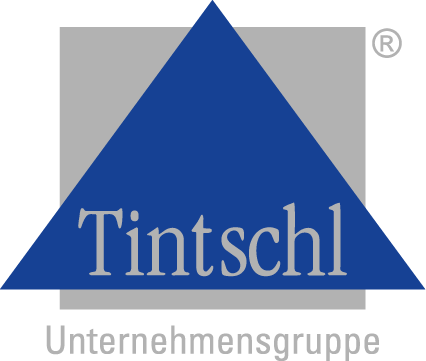Hinweisgeberschutzgesetz/internal reporting office
Legal basis
Due to the implementation of the EU Whistleblowing Directive 2019/1937, the Hinweisgeberschutzgesetz (HinSchG) came into force on 02.07.2023.
The HinSchG aims to establish standardized protection for whistleblowers. It regulates the protection of natural persons who have obtained information about violations in the course of their professional activities and passes it on to internal or external reporting bodies. Reportable violations can be, for example: violations that are punishable by law, violations subject to fines, violations of legal provisions, etc.
The whistleblowing law prohibits any reprisals or retaliation against them.
In compliance with the obligations of the HinSchG, the Tintschl Group has set up an internal reporting office. Below you will find all the necessary information about the internal reporting office and the procedure required by the HinSchG:
▪ to whom the whistleblowers can turn,
▪ on the scope of application, when notices under the HinSchG are possible,
▪ how to deal with information and
▪ to protect the person making the reference and the persons affected by the references.
Regardless of this, there are central external reporting offices that are located at different federal authorities depending on the type of violation. The first point of contact for submitting a report should always be the internal reporting office.
Internal reporting office of the Tintschl Group
Communication is possible via the following channels:
In writing
Tintschl Group of Companies
Internal reporting office (confidential)
Goerdelerstrasse 21
91058 Erlangen
By telephone
(09131) 8124955
Via e-mail
interneMeldestelle@tintschl.de
Anne Abach and Daniela Schneider are the Whistleblower Protection Officers.
The purpose of the HinSchG is to protect the whistleblower from reprisals or adverse treatment as a result of the report or disclosure. Top priority of the internal reporting office is absolute confidentiality towards
▪ of the person making the reference,
▪ the content of the notice/notification and
▪ the person or persons affected by the notice.
The identity of the person(s) may only be known to the registration office (and, if applicable, its filling agents).
Only in exceptional cases - such as criminal proceedings - may law enforcement authorities, for example, demand information about the identity of the whistleblower and the reporting office pass on personal data.
The internal reporting office must confirm receipt of the report within a period of seven days. This is not possible for anonymous reports. An anonymous report is possible, but there is no obligation to follow it up.
Notifiable information
The material scope of application is regulated in Section 2 HinSchG. Accordingly, notices are possible for the following offenses, among others:
▪ Violations that constitute a criminal offense
▪ Violations that are subject to a fine if the violated regulation serves to protect life, limb or health or to protect the rights of employees or their contractual bodies
▪ Other violations of federal and state regulations and directly applicable EU law
Course of the procedure
The procedure following receipt of a report is regulated in § 17 HinSchG. The internal reporting office must
▪ confirm receipt of the report to the whistleblower after seven days at the latest,
▪ check whether the reported violation falls within the scope of the law,
▪ check the validity of the notification received,
▪ keep in contact with the whistleblower and, if necessary, obtain further information and
▪ take appropriate follow-up measures.
In addition, the internal reporting office must follow up the report within three months of and provide the whistleblower with appropriate feedback, unless the report is submitted anonymously.
All incoming reports must be documented. This documentation must be deleted three years after the procedure has been completed.
Protection by the HinSchG
Reprisals against whistleblowers are prohibited (this also applies to threats and attempts).
The whistleblower, in turn, is obliged to compensate for the damage resulting from an intentional or grossly negligent report or disclosure.
Anyone affected by the information is also protected. The protection relates to confidential treatment if the suspicion has not been confirmed or law enforcement authorities are investigating evidence of a criminal offense.
Notes for reporting persons
The reporting person must have sufficient reason to believe at the time of the report that the information they have reported is true. Suspicion alone is not sufficient. For example, if the whistleblower has only heard that misconduct may have occurred, this is not an offense that falls under the HinSchG. The whistleblower must be able to substantiate the information at least to some extent, either through their own observations or through relevant documents.
The reporting of information that has demonstrably been given for no reason is a regulatory offense pursuant to Section 40 HinSchG. Persons who intentionally or grossly negligently pass on false information must also pay for the resulting damage in accordance with Section 38 HinSchG.
External reporting offices
Whistleblowers have the right to choose between an internal and an external reporting office.
Germany-wide external reporting office:
Bundesamt für Justiz
Externe Meldestelle des Bundes
53094 BonnE-mail: hinweisgeberstelle@bfj.bund.de
Tel.: 0228 99 410 6644
Online registration and further Information: https://www.bundesjustizamt.de/DE/MeldestelledesBundes/MeldestelledesBundes_node.html
The reporting procedure for external reporting offices is regulated in subsection 3 HinSchG and is similar to the procedure for internal reporting offices. Further information is available from the internal reporting office on request.
Other external reporting offices:
▪ Federal Financial Supervisory Authority
▪ Federal Cartel Office
With the Ordinance on the Organisation of the Federal External Reporting Office to be established under the Whistleblower Protection Act, the Federal Government has set up another external reporting office: For external reports of violations within the Federal External Reporting Office that fall within the jurisdiction of the Federal External Reporting Office, the Federal Cartel Office (Bundeskartellamt) is the additional external reporting office pursuant to Section 23 of the HinSchG.
